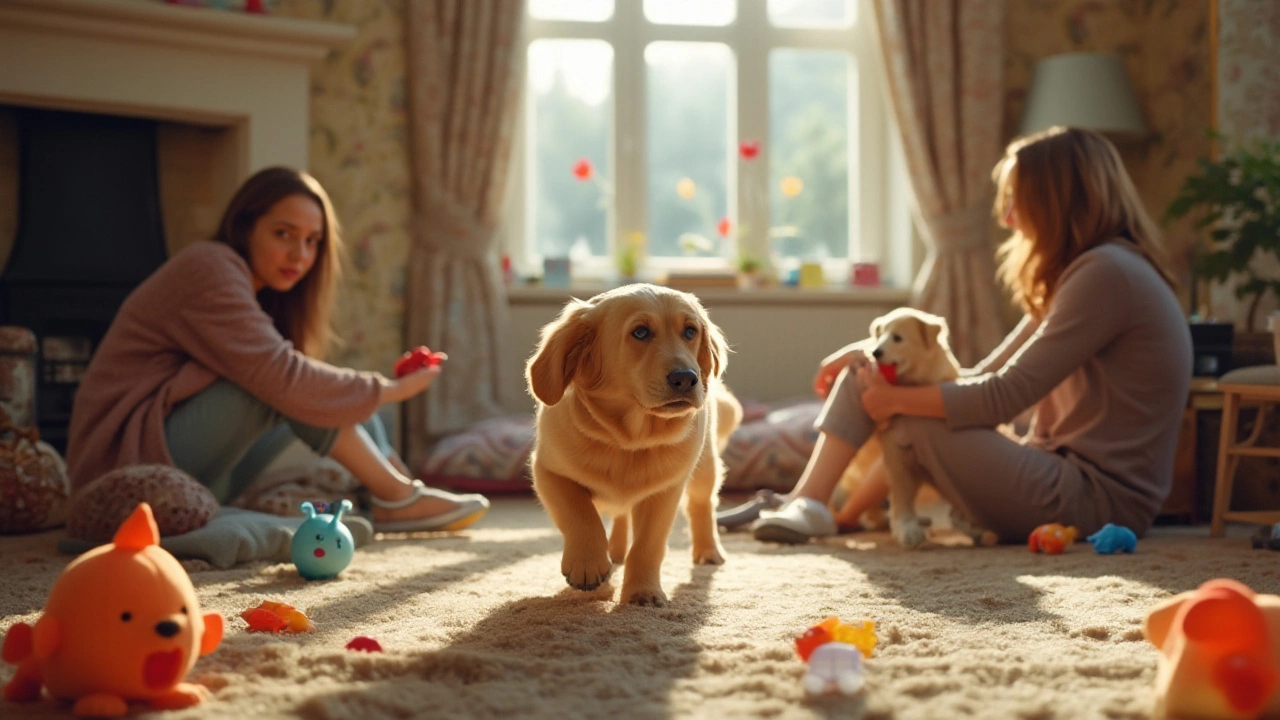Puppy Management: Essential Tips for New Dog Owners
Got a fresh‑off‑the‑shelf pup and wondering where to start? Managing a puppy isn’t magic—it’s about setting simple routines and sticking to them. Below you’ll find quick, real‑world advice that you can apply today, from bathroom breaks to bedtime habits.
Potty Training & Scheduling
The biggest early hurdle is house‑training. Puppies have tiny bladders, so they need to go out every 1‑2 hours, plus after meals, play, and naps. Create a potty schedule and write it on the fridge: first thing in the morning, after each snack, and right before bedtime. When you catch them in the act, praise loudly and give a treat—this builds a clear connection.
If accidents happen, keep it calm. Clean the spot with an enzymatic cleaner so the scent disappears; otherwise the pup might think it’s okay to use the same spot again. A crate can be a helpful tool here: dogs naturally avoid soiling their sleeping area, so a correctly sized crate forces them to hold it until you let them out.
Sleep, Crate & Bedtime Routine
Sleep isn’t just “cute”—it’s crucial for brain development. Puppies need 18‑20 hours of rest daily. Start a bedtime routine: a short walk, a calm chew toy, then settle them in their crate. Close the crate door if they’re napping; it prevents them from darting out and getting into trouble. If they whine, wait a minute before checking—this teaches them that night‑time is for sleeping, not play.
Sharing your bedroom is okay, but keep the crate in a quiet corner. This way they feel safe near you without relying on you to fall asleep. If the pup wakes up to go outside, a quick bathroom break followed by a return to the crate reinforces the night‑time pattern.
Beyond the crate, manage other daily habits. Feed at set times—most vets recommend two meals a day for puppies under six months. Consistent meals help predict potty times and curb overeating. Choose a high‑quality puppy food, and avoid extra treats unless you’re using them for training.
Socialization fits right into the management plan. Short, positive outings to calm environments (like a quiet park) teach the pup how to behave around people and other dogs. Keep sessions under 15 minutes until they’re older, then gradually extend as they grow confident.
Exercise is a double‑edged sword: too little leads to boredom, too much can stress joints. Aim for short play bursts—5‑10 minutes of fetch or tug‑of‑war a few times a day. This burns energy and makes bedtime smoother.
Finally, vet visits are non‑negotiable. Schedule the first check‑up by eight weeks, then follow the vet’s vaccination calendar. Keep a health notebook: note any allergies, deworming dates, and weight changes. This record helps you spot issues early.
Managing a puppy is a marathon, not a sprint. Stick to simple routines, praise good behavior, and stay patient when setbacks happen. With the right habits in place, you’ll watch your little furball grow into a well‑behaved, happy companion.
Posted By Bryndle Redding On 31 Dec 2024 Comments (0)
How to Keep Your Puppy Entertained All Day
Puppies, with their boundless energy and uncontainable curiosity, often leave new pet owners wondering if they need non-stop entertainment. This article explores the need for puppy stimulation and how to balance it effectively. Learn about different toys and activities that can keep your puppy engaged, why mental stimulation is as important as physical play, and how to develop a daily routine. Discover why balancing independent play with structured interaction is key to raising a well-adjusted pup.
READ MORE